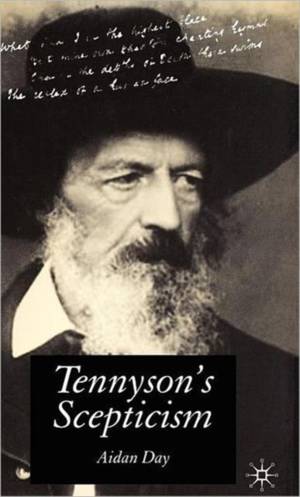
- Afhalen na 1 uur in een winkel met voorraad
- Gratis thuislevering in België vanaf € 30
- Ruim aanbod met 7 miljoen producten
- Afhalen na 1 uur in een winkel met voorraad
- Gratis thuislevering in België vanaf € 30
- Ruim aanbod met 7 miljoen producten
Zoeken
Omschrijving
Tennyson is not known for his scepticism. This book argues that he should be. It proposes a revaluation of the way in which his work is read. Tennyson has always been understood as a poet who is committed primarily to endorsing spiritual values. But this study argues that much of his poetry is driven by a metaphysical scepticism that is associated, in part, with rational perspectives deriving from Enlightenment thought. The scepticism in Tennyson's poetry partakes in the complex generation of the modern that was taking place in his era. One of the purposes of the study is to demonstrate that a cultural studies approach to Tennyson trivialises his intellectual subtlety and complexity. Making extensive critical use of Tennyson's manuscript drafts, this study provides close readings of Tennyson's earlier, shorter poems, together with the principal works of his maturity including In Memoriam, Maud and The Lover's Tale, and will be a valuable resource for Tennyson students and scholars worldwide.
Specificaties
Betrokkenen
- Auteur(s):
- Uitgeverij:
Inhoud
- Aantal bladzijden:
- 225
- Taal:
- Engels
Eigenschappen
- Productcode (EAN):
- 9781403991232
- Verschijningsdatum:
- 20/09/2005
- Uitvoering:
- Hardcover
- Formaat:
- Genaaid
- Afmetingen:
- 163 mm x 224 mm
- Gewicht:
- 408 g

Alleen bij Standaard Boekhandel
+ 167 punten op je klantenkaart van Standaard Boekhandel
Beoordelingen
We publiceren alleen reviews die voldoen aan de voorwaarden voor reviews. Bekijk onze voorwaarden voor reviews.








